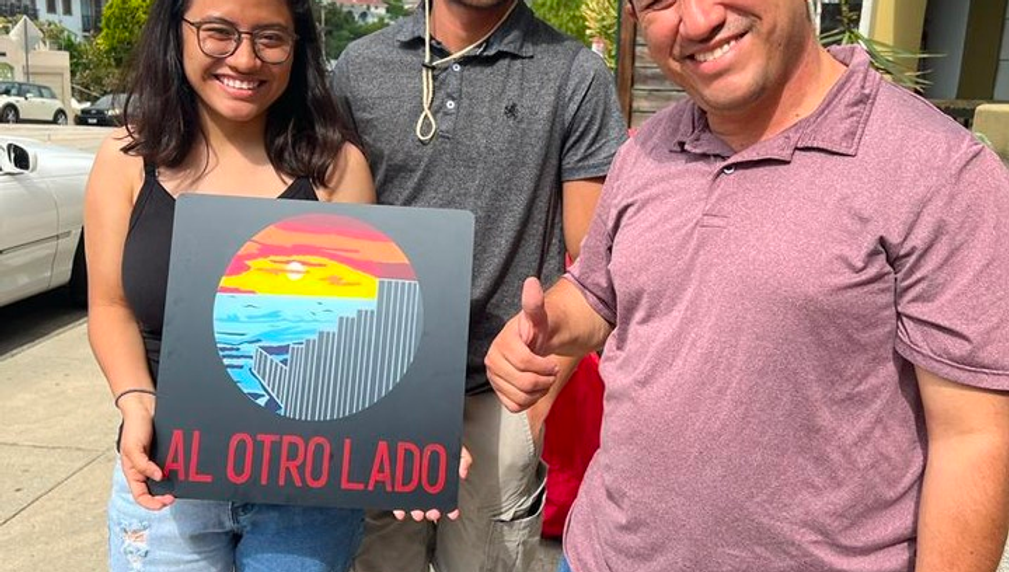Los Angeles Refugee Integration Project
Al Otro Lado’s Los Angeles Refugee Integration Project connects recently liberated asylum seekers and longer-term immigrant residents to necessary resources and support. Our holistic model blends legal and case management services with direct humanitarian support because we recognize that we cannot expect clients to engage in their legal cases, attend medical appointments, or navigate benefits unless and until their basic needs (food, clothing, shelter) are met.

What is the primary issue area that your application will impact?
Immigrant and Refugee Support
In which areas of Los Angeles will you be directly working?
County of Los Angeles
City of Los Angeles
In what stage of innovation is this project, program, or initiative?
Expand existing project, program, or initiative
What is your understanding of the issue that you are seeking to address?
In January 2020, the State of Immigrants in LA County (SOILA) reported a population of 10+ million people and about 36 percent (or 3.6 million) of residents were foreign-born. While immigrants clearly make up a large portion of LA’s population, they remain an untapped civic force; in 2016, an estimated 768,000 individuals were eligible to naturalize but had not yet done so, thus making them unable to vote or engage in other civic participation. One barrier to engagement is language: about 30 percent of all immigrant-headed households are linguistically isolated, defined as having no member age 14 or older who speaks English at least “very well.” Regarding social support, LA has one of the largest immigrant populations in California but coverage in terms of immigrant-serving organizations is less robust compared to other counties: there are three such organizations per 100,000 individuals in LA County compared to ten organizations per 100,000 non-citizen immigrants in Alameda County.
Describe the project, program, or initiative this grant will support to address the issue.
AOL’s approach to advancing equity for immigrant communities in service delivery is both individual and systemic. We believe in “meeting clients where they are,” whether literally (street-based outreach for homeless clients), or figuratively (employing trauma-informed treatment models for clients suffering from PTSD). Unlike most nonprofits, our holistic model blends legal and case management services with direct humanitarian support; we recognize that we cannot expect clients to engage in their legal cases unless their basic needs are met. Our staff travels throughout LA County to meet clients and provide transportation to appointments along with service navigation in the following areas: legal (including fee assistance for application filing, fingerprints, expert witnesses, interpretation/translation, etc.), COVID testing and vaccination, DMV requirements for identification cards and driver licenses, voter registration, basic necessities including monetary assistance for food, utilities and rent, referrals to employment, mental and medical health providers, application assistance for public benefits (Medi-Cal, Cal Fresh, refugee cash program, etc.), information about ESL classes, filing taxes, opening bank accounts, and building credit. The most important step toward naturalization and citizenship for asylees is getting a green card and establishing permanent residency and we support our clients in these applications in order to continue their immigration process.
Describe how Los Angeles County will be different if your work is successful.
We hope that our work will move LA County closer to being a more welcoming and inclusive place for all immigrants, as outlined in the SOILA’s recommendations for governments, businesses, and organizations. We are investing in expanding civic engagement opportunities and strengthening the voice and power of immigrants by providing financial resources and legal assistance for the naturalization process and ensuring language access through interpretation and translation. We are also committed to supporting immigrants’ mental and physical health through referrals and warm hand-offs to trusted service providers in order to reduce the barriers, fear, and uncertainties our clients may have about accessing these benefits and services, especially with regard to potential consequences for their immigration cases. Ultimately, our goal is to ensure that our clients, and immigrants in general, can accomplish their goals and dreams and thrive in this place that we all call home.
What evidence do you have that this project, program, or initiative is or will be successful, and how will you define and measure success?
Aurora is an LA County resident served by our case management program. After she won asylum in 2019, we connected her to the local public benefits office for job search assistance. Aurora was an accountant in her country of origin and found a bookkeeping job. She then became certified as a tax preparer and started her own business. We filed her permanent residency application in 2020. She got her green card in 2021 and we petitioned to bring her two sons to the US. They were reunited in 2022. Aurora volunteers as a mentor to recently arrived asylees and shares this reflection: “My whole world broke into a thousand pieces; I was alone, in a country that was not mine, without speaking the language, without money, and very desperate. That is when I had the miracle of meeting the wonderful team of AOL, who not only gave me all the legal support but also became my family in the U.S. They never left me alone and gave me their love and moral support that made my days more bearable.”
Approximately how many people will be impacted by this project, program, or initiative?
Direct Impact: 100
Indirect Impact: 200